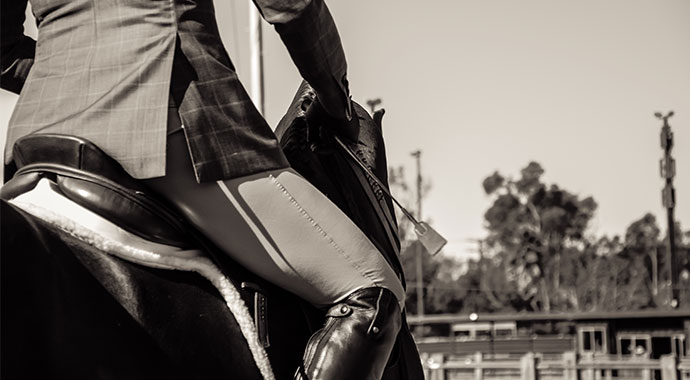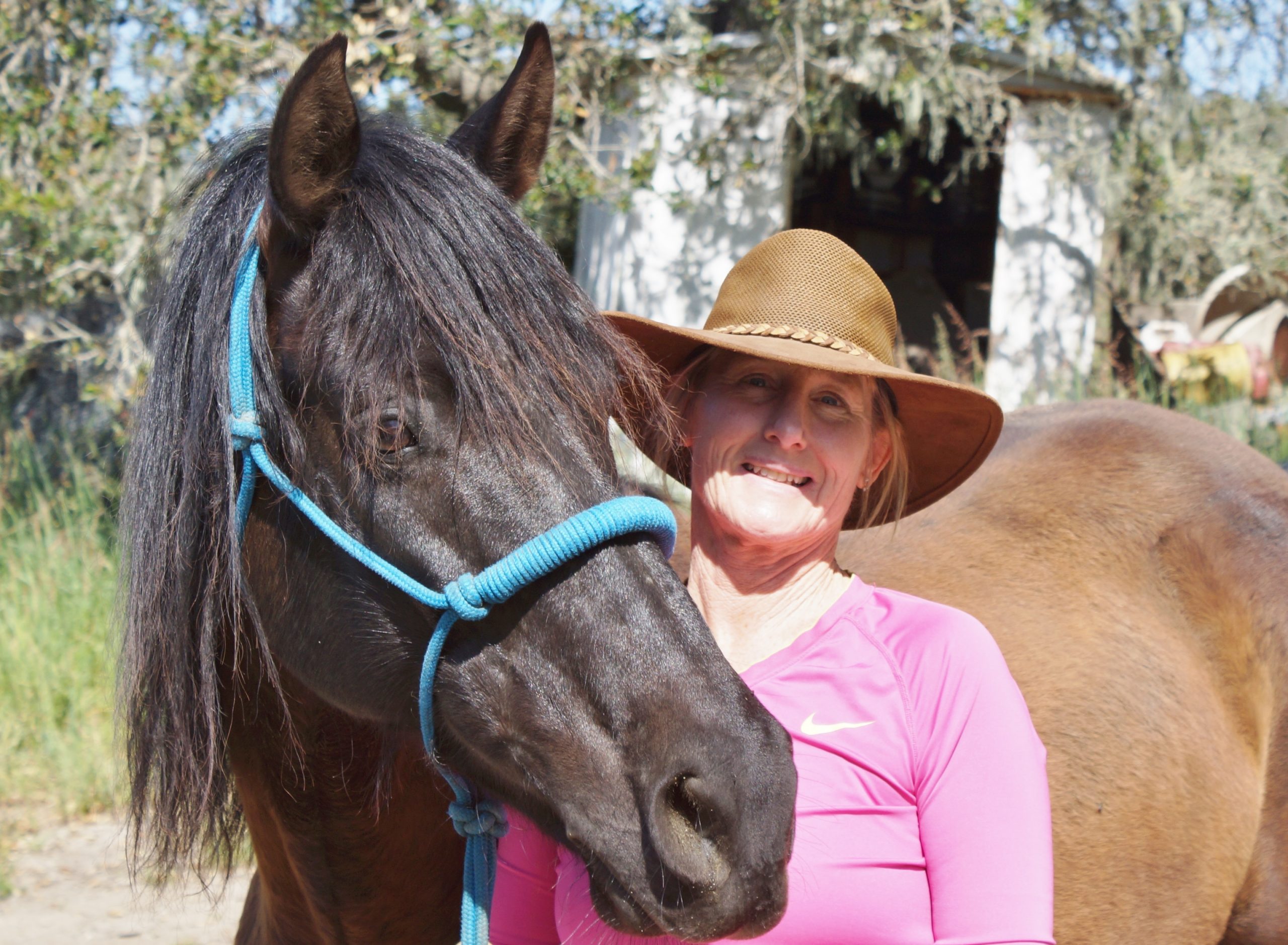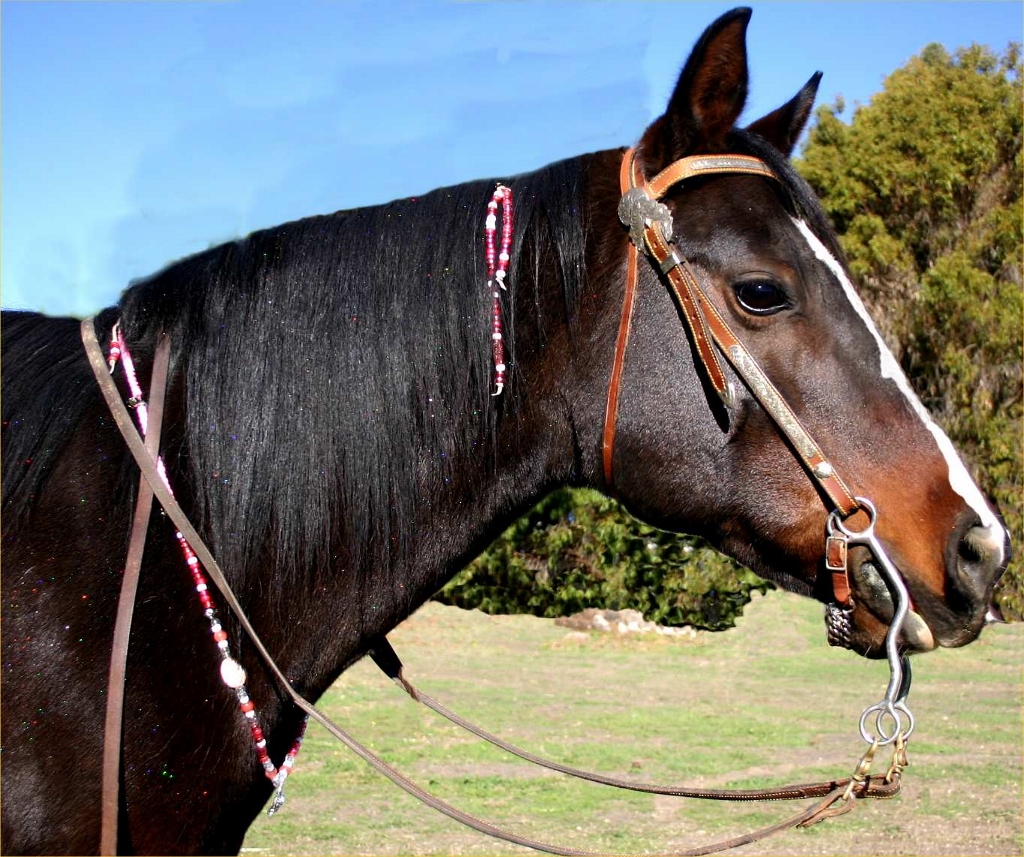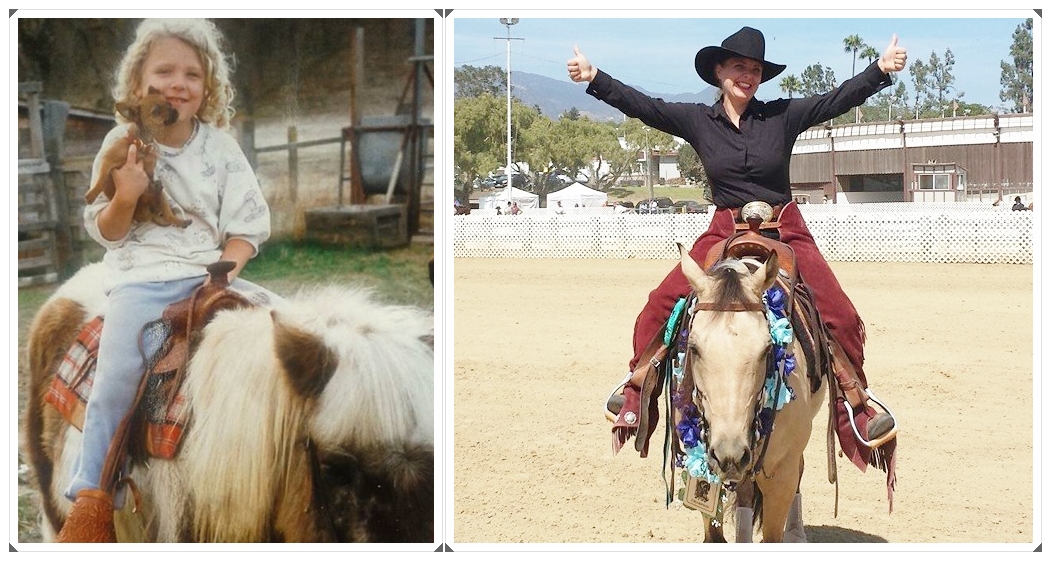Recently, I was talking to a friend that I hadn’t spoken to in a while. We’ve been close since childhood, but living at nearly opposite ends of the state means that our relationship is kept strong by phone calls and only a couple meetings a year. We exchanged the normal pleasantries, and it wasn’t long before she asked how my leg was doing (knowing that the weather had began to turn cold and it usually does a number on me). This got me thinking, and I kept thinking after the phone call was over.
So, a little backstory… About five years ago, I was in a serious horse related accident. After putting the first ride (which was very successful) on a somewhat antsy three year old, I was leading him back to the barn from the round pen when a gust of wind blew a nearby tarp into the air. As fate would have it, my foot twisted in a gopher hole and the horse came over on top of me. The result was a spiral fracture of my tibia and a fractured knee. Without getting into the gory details, I’ll simply say that recovery involved a 4 day hospital stay, surgery, the placement of a 7 inch metal plate in my leg, the rebuilding of my kneecap and 12 weeks of bearing no weight. Being an avid rider, this threw my whole life out of whack in more ways than one. Suddenly, I was helpless, couldn’t do things on my own, and even as I lay in bed, I would go over what happened in my head; a strange sort of fear began to settle over me. I knew it had just been an accident, and a freak one at that. I hadn’t done anything wrong, and neither had the horse; he was just doing what 3 year olds do. Still, I agonized over the idea of riding again…would I be able to do it? Getting into the saddle as quickly as possible became both a focus and a fright.
My doctor “suggested” that even after I was cleared to “walk” without the aid of crutches, that I still wait another two months to ride. Any trauma could cause more damage, especially to the areas of my leg held together by screws. I agreed, of course, but about two weeks later something told me that it was now or never. I knew instantly that if I kept waiting, I would always be waiting; if I did ever get back into the saddle, I would be scared out of my mind that something might happen and my confidence would be lost. So, I drove myself to the barn, put a soft snaffle on my best horse, led her over to a nearby fence, stroked her furry neck, gulped down my fear and slid onto her back. There was no one around because I wanted it that way; I had to do it on my own terms. I urged her forward slowly and like the sweet and gentle animal that she is, she tentatively took me for my first post accident ride…which consisted of about three laps around the arena (two at the walk and one at the jog). I slid slowly to the ground, and I knew that I was back.
Am I advocating going against doctors orders? No. What I am trying to express is that after a serious accident it’s important to not let the fear overtake you. The old adage of “if you fall off the horse, get right back on” really does apply. For me, that was impossible, but I needed to “get back on” as quickly as possible or I knew that there would always be an excuse not to. I have spoken with countless “horse friends” who have had similar experiences, and we all seem to share the same sentiment…the longer you wait to conquer your fear, the worse it becomes. A girl I used to ride with on the Fresno State Equestrian Team had a minor accident where she fell off her horse and had the wind knocked out of her for a few moments. Her instructor quickly ushered her out of the arena and even after she had calmed down and caught her breath, the instructor gave her a pass and sent her home for the rest of the day. She didn’t come to the barn the next day, or the day after, and she says that after three days she knew she’d never ride again. “If I had just gotten back on the horse that day and took a couple laps around the arena, I’d probably still be riding,” Mona says. “As it is now, a girl who grew up with horses is now afraid to even stand next to one. It’s stupid, but I even close my eyes during parades when the horses come by.”
So, what can you do after an accident to help yourself get back into the saddle and be a confident rider again? Here is a little psychology for you… The way in which we store and archive memories is quite interesting. Bad memories can either become fuzzy and fade (the whole “time heals all wounds” thing), or they can become vivid and even stronger than the actual event (i.e. someone who creates a phobia related to a trauma). Research shows that we indeed have the ability to help shape the way that our brain archives a memory by positive reinforcement and what is called “exposure treatment” and “systematic desensitization”. The longer that a person agonizes about a trauma and waits to confront a fear (by avoiding it, not talking about it, not looking at it, etc.), the more difficult that it is to rewire that part of the brain that has begun to build up the phobia. This part is important, because as equestrians, when we have an accident, we tend to replay it over and over in our minds looking for reasons why it happened or for ways we could have avoided it, and in our stoicism (and possibly embarrassment) we often brush it off when people try to talk to us about it. By doing this and not actually exposing ourselves to the source in a tangible way, we are helping to archive a bad memory and in many cases create a phobia.
So, if your accident puts you out of the saddle for a significant period of time, it is helpful to practice “exposure therapy” by at least going out to the barn and giving your best buddy a pat on the neck, or if you are unable to leave the house, to talk about what happened with someone who understands the situation. By talking about the fear, it diminishes; by exposing yourself to the fear, it tends to evaporate. Remember, my fear over my accident didn’t actually set in right away, it took a few weeks, but for some people it happens overnight, so the quicker you face it, the better.
In the end, remember that bad things happen to good people all of the time. As riders, we understand the risks, and that’s probably part of the allure for many of us; the thrill of managing and becoming one with an animal that is so incredibly powerful. If the worst happens, realize that you are actually holding yourself back if you let the fear get the best of you, and that by getting back at it as quickly as possible, you are actually helping to avoid the fear mechanism all together. For all of the student riders out there, or parents of student riders, your trainers are not being “mean” when they try to get you back into the saddle as quickly as possible after a fall, they are actually practicing immediate exposure therapy. And, in closing, a little “do what I say and not what I do” is probably warranted…listen to your doctors advice so as not to put yourself in physical danger; telling my story was simply meant to illustrate how someone who had been riding all of her life could have very well succumbed to fear and ended what will hopefully be a life rich with “horsey adventures”.
[contentblock id=4]




